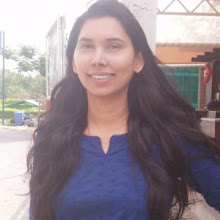After two days of mellifluous Kheyal Gayeki from the heartland of Punjab that enchanted the lovers of Hindustani Classical music in the capital, curtains came down today on the Festival of the Traditional Music of Punjab.
The festival that brought together four different singers and performers on one stage at the India International Centre was presented by Punjabi Academy, Govt. of Delhi, Department of Art, Culture & Languages, Govt. of Delhi.
The final day began on a spiritual note with Qutubi Qawwal from the Dargah presenting the Sufi Qawwali from Punjab. The last performance of the festival was of Pandit Yashpaul rendering the Punjabi Kheyal Bandishes.
The mellifluous kheyal ‘bandishes’ is a genre of ‘Gayeki’ which has enriched the Hindustani Classical music for more than two centuries now. Before the advent of Kheyal, there were four famous Gharanas of Dhrupad singing in the Punjab, Talwandi, Haryana, Sham Chaurasi and Kapurthala. Kheyal Gayeki emerged as the next stage of evolution in the history of Hindustani music as the strict discipline of earlier days gave way to greater expansiveness and liberty of expression in the musical firmament. The process of this evolution had started with the creative endeavors of Amir Khusroe in the 12th century and completed itself under the vibrant outpourings of Niamat Khan Sadarang and Ferozkhan Adaran who gave the Kheyal style its present stamp.
Kheyal Gayeki remained confined to Delhi for some time, and it was only later during the 19th century that the new style reached the Punjab. From Delhi, it was first taken to Gwalior where Haddu Khan and Hassu Khan laid the foundation of the Gwalior Gharana of Kheyal singing. Banne Khan Nangliwale learnt from them and went to Punjab and taught stalwarts such as Pyare Khan, Umaid Ali Khan and Mubarak Ali Khan. Meanwhile, “Jamail” Ali Bakshi and “Kaptaan” Fateh Ali of Patiala became Shagirds of Tanras Khan of Delhi who had also learnt from Haddu-Hassu Khan of Gwalior, and from Mubarak Ali of Jaipur (son of Bare Mohd Khan). They founded the Patiala Gharana of Music, from which flows an important line of Kheyal Gayeki of the Punjab. This genre of gayeki further evolved over the 20thcentury and adopted new ways of rendition and musical instruments.
“As you are aware the Punjab has always been renowned for its beautiful “Bandishes” which have enriched the repertoire of Hindustani Classical Music. Punjabi is the only other language, apart from Braj Bhasha, in which Kheyal Bandishes have been written over the centuries. Shah Sada Rang and Ada Rang, creators of the Kheyal style of Hindustani Classical Music, have also composed some beautiful Bandishes in Punjab which will be presented in this Festival. Over the last two centuries, Hindustani Musicians whether from the Punjab or elsewhere, have sung these Punjabi Kheyal compositions. It is our effort through this Festival to revive an interest in them by encouraging their research and presentation,” says Ms. Geetanjali Gupta, Secretery, Art, Culture & Languages, Government of Delhi.
“Through this annual festival, our effort is to revive interest and attract youngsters to this beautiful form of classical vocal music. We also want to encourage research and presentation in the art form that is an intrinsic part of our composite culture,” says Shri Jawahar Dhawan, Secretary, Punjabi Academy.
About Punjabi Academy
Delhi after independence emerged as a cosmopolitan city of diverse cultures and languages. It has always been the endeavour of the Delhi Govt. to provide all possible facilities for the development and promotion of different languages and projection of the composite culture of
Delhi. Thus, the Delhi Govt. established the Punjabi Academy in September, 1981 to propagate and promote Punjabi language, literature and culture as an integral part of composite culture of Delhi.
Ever since its inception, the Academy has been playing a catalytic role in the propagation of Punjabi literary and cultural activities, in the spheres of music, folk dances, seminars, symposia, short story, poetry, novel, literary criticism, drama etc. where it has assumed a significant role and status of the premier organization in the field of Punjabi culture. Please visit
www.punjabiacademy.com for more information.






Comments
Post a Comment